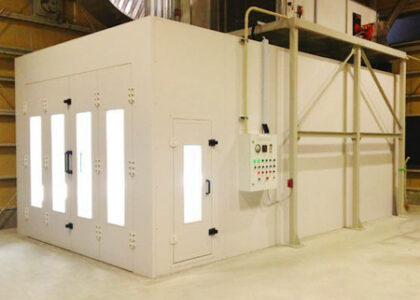As per the report published by FMI, the global automotive connectivity control unit market is projected to have a rapid-paced CAGR of 10.5% during the forecast period. The current valuation of the market is US$ 4.32 Billion in 2022. The market value of automotive connectivity control units is anticipated to reach a high of US$ 11.7 Billion by 2032.
The automotive connectivity control unit (CCU) market is a significant segment within the automotive industry, focusing on providing connectivity solutions for vehicles. Here’s an overview of key aspects of this market:
Definition and Functionality: Automotive connectivity control units are electronic modules or systems that enable connectivity features within vehicles. These units facilitate communication between various onboard systems, external networks, and devices, allowing for functions such as internet connectivity, telematics, infotainment, vehicle-to-vehicle (V2V) communication, and over-the-air (OTA) updates.
Get Access to Sample Now:
https://www.futuremarketinsights.com/reports/sample/rep-gb-8262
Market Segmentation: The automotive connectivity control unit market can be segmented based on various factors such as connectivity type (cellular, Wi-Fi, Bluetooth, NFC), vehicle type (passenger cars, commercial vehicles), application (infotainment, navigation, telematics, vehicle diagnostics), sales channel (OEM, aftermarket), and geography.
Market Size and Growth: The market size for automotive CCUs is influenced by factors such as increasing demand for connected vehicles, advancements in vehicle connectivity technologies, regulatory mandates for vehicle safety and emissions monitoring, and consumer preferences for enhanced in-car experiences.
Key Players: Major players in the automotive CCU market include automotive suppliers and technology companies such as Bosch GmbH, Continental AG, Aptiv PLC, Harman International Industries, Inc. (a Samsung company), and Visteon Corporation. Additionally, there are semiconductor manufacturers and telecom providers contributing to the development of CCU solutions.
Product Portfolio: Automotive CCU manufacturers offer a diverse portfolio of products, including standalone control units, integrated modules within infotainment systems or electronic control units (ECUs), and cloud-based connectivity platforms. These solutions vary in terms of connectivity protocols, processing power, memory capacity, and software capabilities to meet the requirements of different vehicle models and applications.
Technological Trends: Technological advancements in automotive CCUs focus on enhancing connectivity, security, and functionality through innovations such as 5G cellular connectivity enabling high-speed data transmission, cybersecurity measures protecting against cyber threats and unauthorized access, software-defined architectures facilitating flexible feature updates, and artificial intelligence (AI) algorithms enabling intelligent vehicle services.
Market Drivers: Factors driving the automotive CCU market include the increasing integration of digital features and services in vehicles, consumer demand for seamless connectivity and personalized experiences, regulatory initiatives promoting vehicle connectivity for safety and efficiency, and advancements in vehicle-to-everything (V2X) communication enabling cooperative driving and smart mobility solutions.
Market Challenges: Challenges facing the automotive CCU market include interoperability issues with legacy vehicle systems and external devices, concerns over data privacy and cybersecurity vulnerabilities, complexity in integrating and maintaining multiple connectivity protocols and standards, and the need for standardization and harmonization among different automotive and telecom industry stakeholders.
Opportunities: Despite challenges, there are opportunities for growth in the automotive CCU market, particularly in segments such as advanced driver assistance systems (ADAS), autonomous driving technologies, connected car services (e.g., remote diagnostics, vehicle tracking), and fleet management solutions targeting commercial vehicle operators and mobility service providers.
Regulatory Environment: The automotive CCU market is subject to regulations and standards governing vehicle safety, emissions, cybersecurity, and data privacy, enforced by regulatory authorities such as the National Highway Traffic Safety Administration (NHTSA), the Federal Communications Commission (FCC), and industry consortia. Compliance with these regulations is essential for CCU manufacturers and automotive OEMs to ensure product quality, safety, and regulatory approval.
Overall, the automotive connectivity control unit market plays a crucial role in enabling connected vehicle services and experiences, with ongoing innovation and collaboration driving improvements in connectivity technology, security, and user-centric features. Continued investment in research and development, industry partnerships, and regulatory compliance will be essential in realizing the full potential of automotive connectivity in enhancing vehicle safety, efficiency, and convenience.
Direct Purchase of this Report: https://www.futuremarketinsights.com/checkout/8262
Key Segments Profiled in the Automotive Connectivity Control Unit Industry Survey
Product Type:
- External Vehicle Communication Control
- In-Vehicle Communication Control
Vehicle Type:
- Passenger Vehicle Automotive Connectivity Control Unit
- Light Commercial Vehicle Automotive Connectivity Control Unit
- Heavy Commercial Vehicle Automotive Connectivity Control Unit
Sales Channel:
- Original Equipment Manufacturer (OEM)
- Aftermarket
Region:
- North America
- Latin America
- Western Europe
- Eastern Europe
- APEJ
- Japan
- Middle East and Africa
Author
Nikhil Kaitwade (Associate Vice President at Future Market Insights, Inc.) has over a decade of experience in market research and business consulting. He has successfully delivered 1500+ client assignments, predominantly in Automotive, Chemicals, Industrial Equipment, Oil & Gas, and Service industries.
His core competency circles around developing research methodology, creating a unique analysis framework, statistical data models for pricing analysis, competition mapping, and market feasibility analysis. His expertise also extends wide and beyond analysis, advising clients on identifying growth potential in established and niche market segments, investment/divestment decisions, and market entry decision-making.
Nikhil holds an MBA degree in Marketing and IT and a Graduate in Mechanical Engineering. Nikhil has authored several publications and quoted in journals like EMS Now, EPR Magazine, and EE Times.
About Future Market Insights (FMI)
Future Market Insights, Inc. (ESOMAR certified, recipient of the Stevie Award, and a member of the Greater New York Chamber of Commerce) offers profound insights into the driving factors that are boosting demand in the market. FMI stands as the leading global provider of market intelligence, advisory services, consulting, and events for the Packaging, Food and Beverage, Consumer, Technology, Healthcare, Industrial, and Chemicals markets. With a vast team of over 5000 analysts worldwide, FMI provides global, regional, and local expertise on diverse domains and industry trends across more than 110 countries.
Contact Us:
Future Market Insights Inc.
Christiana Corporate, 200 Continental Drive,
Suite 401, Newark, Delaware – 19713, USA
T: +1-845-579-5705
For Sales Enquiries: sales@futuremarketinsights.com
Website: https://www.futuremarketinsights.com
LinkedIn| Twitter| Blogs | YouTube

